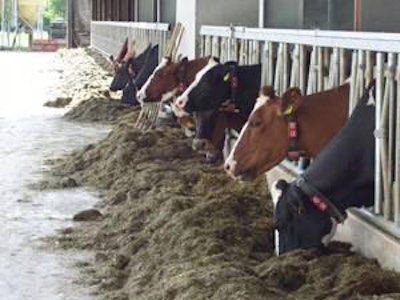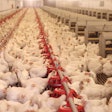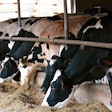
Senate Bill 27 promises
monitoring, tracking system in hopes of curbing antimicrobial resistance
California’s
Senate Bill 27 (SB27) proposes the strictest regulations regarding
antibiotic usage in United States and, as the deadline nears, it looks likely
the bill will be signed into law early this fall.
While Guidance
#213 remedied antibiotic growth promoters (AGPs) labeling and moved
medically important drugs to Veterinary
Feed Directive (VFD) status, SB27 prohibits the use of AGPs in the state,
holding the abusers accountable, and seeks to ban the over-the-counter sale of all medically important antibiotics to livestock producers.
Essentially, the bill will codify the VFD
requirement for medically important antimicrobials in to California law, firmly
stating that, to administer these drugs through livestock feed or through water will
require a VFD or prescription from a licensed veterinarian. In addition,
producers administering antibiotics through injection or oral administration
will be required to obtain a prescription, a major difference from the voluntary
federal policy, which only applied to feed and water additives.
This will make California the first state to put all of
these medically important antibiotics under the purview of a licensed
veterinarian.
Beyond requiring veterinary oversight for medically
important antibiotics, the bill also will introduce tracking and monitoring
systems for antibiotic usage and resistance and will additionally establish
antibiotic stewardship programs. The data collected will help lead to a better
understanding between antibiotic use and the development of antibiotic-resistant bacteria. The establishment of an antibiotic tracking service will be
spearheaded by the California Department of Agriculture and would be coordinated
with federal agencies to supervise the implementation of the bill.
September deadline
The origins of SB27, introduced by Sen. Jerry Hill
(D-San Mateo/Santa Clara counties), build on his earlier efforts to address antimicrobial resistance as a
public health concern. In 2014, Sen. Hill presented a similar bill, SB835, to Gov. Jerry Brown, who vetoed it because he
felt the legislation needed to be stronger in hopes of “finding new and
effective ways to reduce the unnecessary antibiotics used for livestock and
poultry.”
Since the 2014 veto, Hill’s team has been working closely
with Brown’s office to craft the updated legislation. The bill was heard by the
Assembly Agriculture Committee in early July and was passed with bipartisan
support 7-1. The bill will next be heard in the Assembly Appropriations Committee on Aug. 19.
The final vote will take place prior to the end of the
state’s legislative session on Sept. 11, 2015. To date, the language of the
bill will continue to be refined with the state’s agricultural stakeholders,
who have taken a neutral position on the legislation.
If this bill is signed into law, it will take effect on
Jan. 1, 2016, with components of the bill being phased in until 2018. This phase-in period will allow rural producers ample time to establish a
relationship with a veterinarian in order to comply with the law.
















